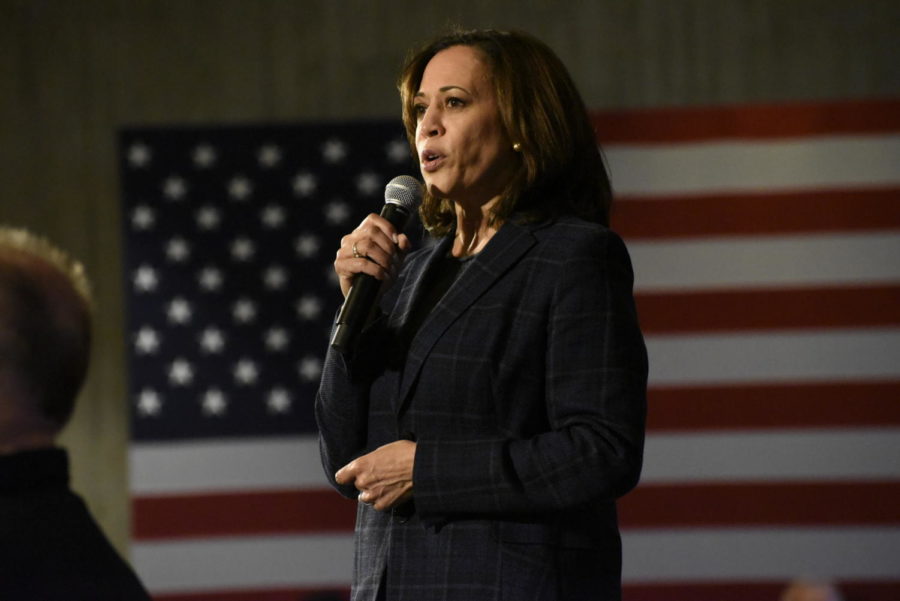Democratic candidates use victory in Iowa’s caucuses to jump start presidential campaigns
Caitlin Yamada/ Iowa State Daily
Vice President Kamala Harris speaks at a town hall Oct. 6 at Iowa State. Harris discussed many topics, including the climate crisis, gun control and whether she thinks a woman of color can become president.
October 20, 2019
Iowa served as a launching pad for several presidential campaigns, and the stopping point for many others.
Sen. Kamala Harris said in September she is “moving to Iowa” as she seeks to reboot her presidential campaign. She is currently polling in the mid-single digits in both polls of likely Iowa Democratic caucusgoers and likely Democratic primary voters nationally.
Sen. Cory Booker, sitting below Harris in most polls of Iowa and the national Democratic primary electorate, also seeks to rise up and get a bump out of a strong performance in Iowa.
“Iowa is a place you often see the underdogs winning — John Kerry was polling at four percent in Iowa [in the fall of 2003],” Booker said while speaking on a call with reporters in September.
Kerry did poll as low as single digits in surveys of likely Iowa caucusgoers in the fall of 2003, and rose in the polls as the then-frontrunners Howard Dean and Dick Gephardt’s unfavorable ratings increased amid spending millions of dollars on negative television advertisements against each other. Kerry won on caucus night by nearly six percent.
Mack Shelley, Iowa State professor and chair of the political science department, said Iowa is a place where presidential campaigns end, but also where some can regain strength.
“Not many people knew who Jimmy Carter was nationally, but he broke through in Iowa,” Shelley said.
Carter was a relatively unknown one-term former governor of Georgia when he sought the White House in the 1976 presidential election. Carter ran amid 13 candidates, which was then the largest field ever running in a presidential primary. Carter barnstormed across Iowa from when he declared his candidacy in December 1974 until caucus night, when he finished ahead of all the other candidates in the race.
As was the case in 1976, during the 2008 presidential election, Barack Obama was polling better in Iowa than he was nationally, but below Hillary Clinton in both national polls and Iowa polls until December 2007. Obama’s easy victory in the Iowa caucuses translated into a bump nationally and he was able to overtake Clinton to win the Democratic nomination and the White House.
An Emerson College poll of likely Iowa Democratic caucusgoers released Thursday found national frontrunners Joe Biden and Elizabeth Warren in the lead in the state with 23 percent support, followed by Pete Buttigieg with 16 percent and Bernie Sanders with 13 percent. All other candidates have five percent support or less, including Booker and Harris, with three and two percent respectively.

















